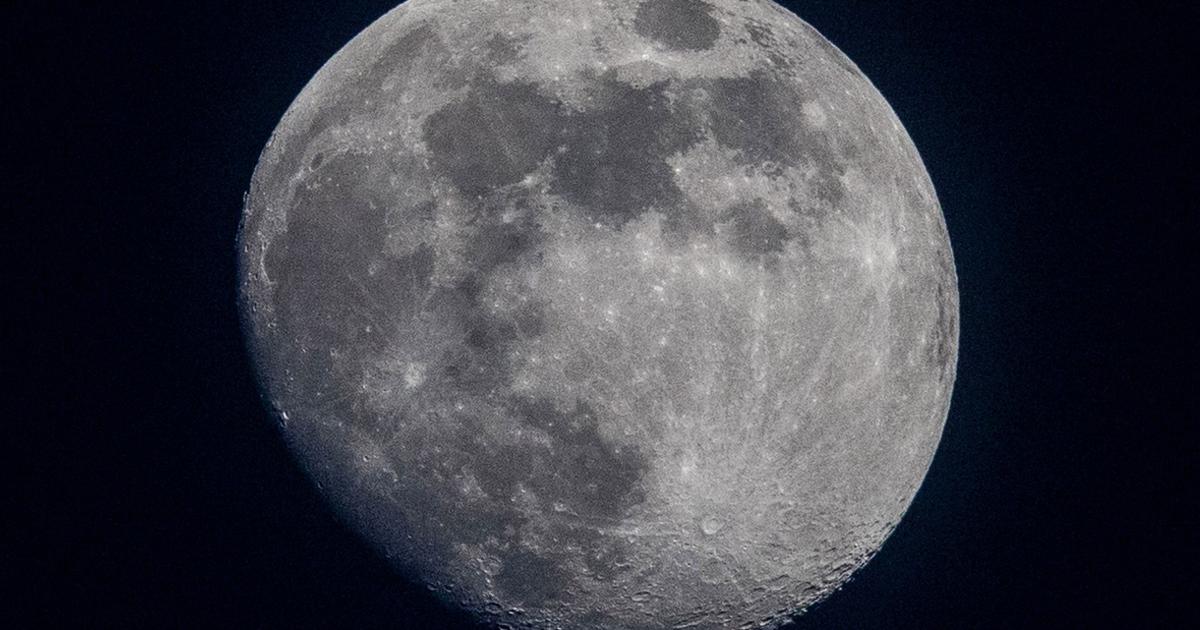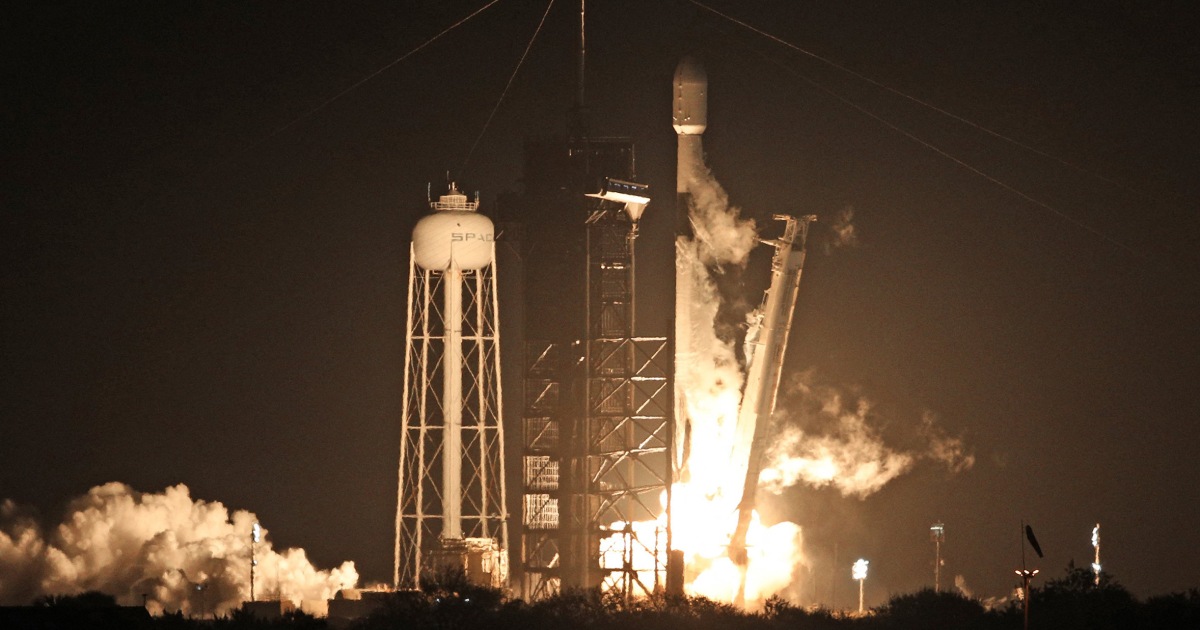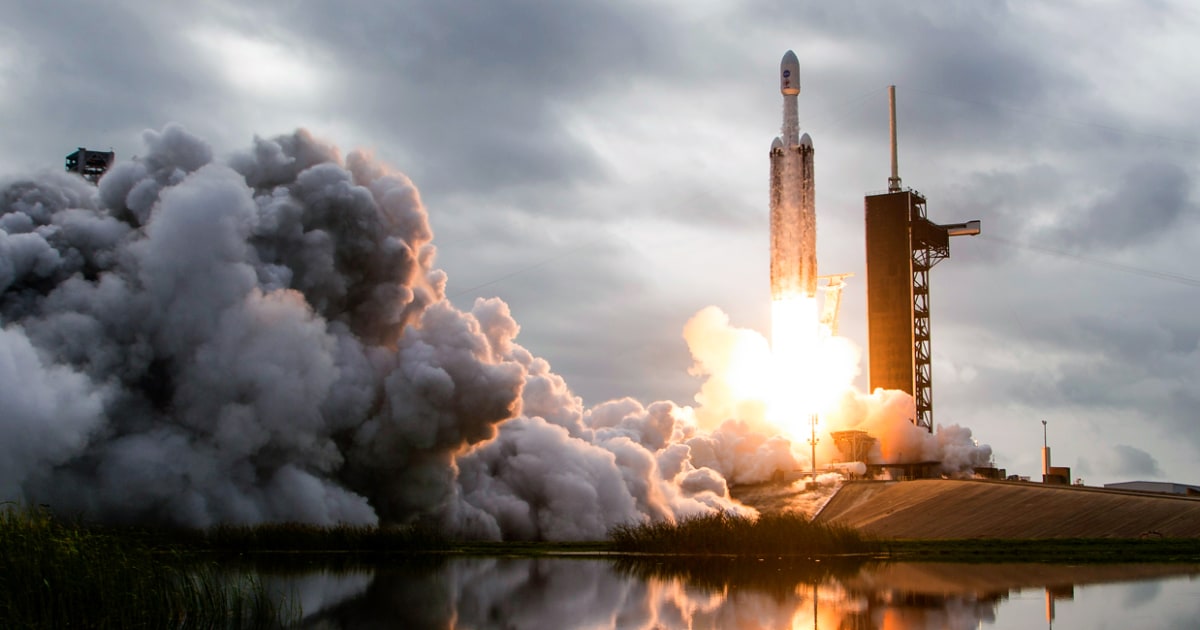The south pole of the Moon is going to be the scene of a new fight between David and Goliath.
The giant in this case is the United States. Its program for the first woman to step on the satellite in 2024 is scheduled to start next week with the launch of the Artemis I mission, which has been delayed several times due to technical problems.
On the other side is China, the largest of the emerging space powers.
In just a few decades, it has managed to land a robotic probe on the hidden side of the Moon and become the third country to successfully land on Mars, after the US and Russia, and ahead of Europe, whose Exomars mission has been left dry docked for the Ukrainian war.
The US and China are competing to locate the best places to extract frozen water from the satellite's perpetual shadow zones, where the sun never reaches and temperatures are so frigid that even robotic missions can't stay long.
Therefore, at the same time they must find high points in the mountains with enough solar energy to locate permanent bases.
A few days ago, the former heads of the US, European and Chinese space programs participated in an unusual debate in which they spoke about this new space race with unusual sincerity.
"The Moon does not belong to anyone and no country can claim territory there," recalled Jean-Jacques Dordain, former president of the European Space Agency (ESA), during the event, held in Armenia during the Starmus VI festival. .
Dordain urged the signing of an international "agreement" to exploit the satellite's resources.
"I hope we don't contaminate the Moon like we have already done with the Earth," he warned.
Charles Bolden, former head of NASA under Barack Obama, was clear in his reply: "I cannot speak to China, but Europeans can and I encourage you to do so."
Since 2011, a law prevents space collaboration between the US and China.
In addition, both countries are at odds in politics and trade.
This week, the current head of the space agency, Bill Nelson, has released a devious message: his country is willing to collaborate with the Asians if they increase their transparency, according to the specialized media Space.com.
On the Chinese side spoke Ji Wu (Beijing, 64 years old), who is one of the people who best knows the hermetic space program of the communist country.
“Right now we are at war.
But what we should do is sit down and talk”, assured the telecommunications engineer.
Wu was responsible for China's first scientific space mission, coordinated joint missions with ESA, and for years headed China's National Space Science Center.
Currently he chairs the China Society for Space Research and in his spare time he writes science fiction novels.
His latest book narrates the adventures of a Chinese space program engineer who leaves his job to direct a business project: build the first hotel on the Moon;
something that Wu believes will happen in less than 20 years.
Ask.
What is China's next big goal in space exploration?
Response.
At first, our development was purely technological.
Once we have mastered that part, we begin to expand the scientific aspect.
In 2011 we restarted the science program to launch one space mission a year.
Another different line is the manned exploration program, which is much more political and is aimed at the general public, to make people feel proud of their country.
In these programs there are fewer scientific instruments.
In any case, now China has its own space station in which there is more space for science.
Q.
What kind of experiments do you do?
A.
We study issues in biomedicine, microgravity, astronomy, astrophysics, Earth observation, and remote sensing.
We are going to launch a new space telescope soon.
It is two meters in diameter and its field of view is much wider than that of the Hubble Space Telescope.
Q.
What plans do you have for the Moon?
A.
[In 2018] The Chang'e 4 mission landed on the far side of the Moon.
Chang'e 5 was the first in China to return lunar samples to Earth, [the first in 44 years].
Ship 6 will be identical to 5. It will be launched in 2023 and will try to return samples from the far side of the Moon.
To be able to communicate with this area we have a communication satellite.
We will continue later with a second generation of probes, starting with number seven.
Most will probably land at the south pole.
We need solar energy and here we can have 10 months of light.
It is much easier than on the dark side, where the lack of sun forces us to go into hibernation every 14 days.
Q.
How do you plan to overcome the perpetual shadow problem?
A.
One of our ideas is to send a jump vehicle capable of exploring areas where sunlight never reaches to see if there is frozen water.
We want to take samples and bring them back to Earth.
But these areas are so cold that no ship can stay long.
You have to take the sample and leave.
That is why we are developing a jump vehicle that will go on board the Chang'e 7 and 8 probes. These missions will lay the foundations for the International Lunar Research Station, which we are going to build together with Russia.
We want more countries to participate.
There is an open call to do so.
It will be a robotic station, for now.
First we will bet on the space station until at least 2033. Only then maybe we start thinking about the Moon
Q.
The US and Europe want to know if there is water and minerals at the South Pole to make rocket fuel. Is China looking for something similar?
A.
The lunar south pole is not a place to be explored by humans.
It is full of deep valleys and towering mountains.
There are very few places to stay and even there it would be very difficult to get around with vehicles.
It is better to travel to the flatter areas, the so-called seas.
There it is much easier to land, build a base and move around.
Q.
Does China plan to send humans to the Moon?
R.
Yes. There is no concrete plan, but it is obvious: after the space station, where are we going to go?
Now NASA is leading the [Deep Space] Gateway project and the Artemis mission.
The objective is not to stay, but to rehearse in order to later go to Mars.
More than 20 countries collaborate in the Gateway, but some of them do not even know what their tasks are.
It's a US club. I dislike it.
They should let China and Russia in.
Private companies will build hotels on the Moon in less than 20 years
Q.
Would China want to participate?
A.
Sure.
We were never invited.
Q.
Why?
R.
For political reasons.
They want to throw us out and at the same time they are afraid that we have advanced so fast.
They do not like it.
They want to remain superior to us.
Q.
Could China compete with Artemis?
A.
No. China's goal is not to compete with the US. We have our own development plans.
First we'll bet on the space station until at least 2033. Only then maybe we'll start thinking about the Moon.
Q.
Do you think that one day there will be humans living there?
R.
Yes, in less than 20 years.
As soon as the lunar night problem is solved, it will be profitable to build hotels there.
I talk about it in my novel
The Lunar Hotel
(2021, translated into French).
Q.
Would you go to one of those settlements?
A.
Of course.
It's my dream.
But it all depends on the price.
In my book I speculate that the round trip ticket will be a million dollars.
Q.
Who do you think will build the first human settlements on the Moon?
R.
They will be private companies, for sure.
Having this human presence on the Moon is much more important than getting astronauts to Mars.
Q.
What plans does China have for Mars?
A.
The next mission is to an asteroid.
We want to retrieve samples of him and bring them back to Earth.
In two years we hope to launch it.
After this, the ship will go to Jupiter.
Once this is achieved we will try to bring samples from Mars to Earth;
probably in 2030. In any case, before going to Mars with manned missions we will go to the Moon.
You can follow
MATERIA
on
,
and
, or sign up here to receive
our weekly newsletter
.
Subscribe to continue reading
read without limits
Keep reading
I'm already a subscriber





/cloudfront-eu-central-1.images.arcpublishing.com/prisa/ZLW56GYGEBEJLPNDSNPUK2NJZE.jpg)

/cloudfront-eu-central-1.images.arcpublishing.com/prisa/Q2GFUQLBLVDFDE4G6U6GH2UFJE.png)





